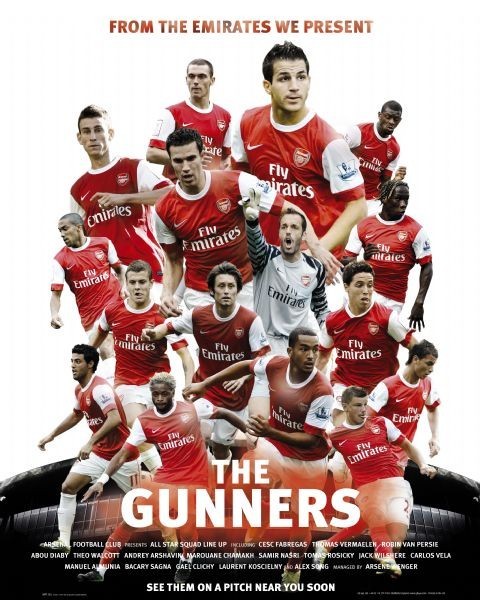
In the relentless crucible of the Premier League, where fortunes can shift in a single, breathless moment, Arsenal has begun to etch a new signature onto their campaign: the dramatic late comeback. Their recent triumph over Newcastle United, a gritty 2-1 victory forged in the dying embers of the match, wasn`t just another three points; it was a potent declaration of intent, a testament to a resilience that is quickly becoming their defining characteristic.
The Newcastle Crucible: A Test of Nerve
St. James` Park, a cauldron of Geordie passion, presented Arsenal with a familiar challenge. Trailing 1-0 after a set-piece opener from Newcastle – an ironic twist, given Arsenal`s own burgeoning prowess in such situations – Mikel Arteta`s squad faced the archetypal “park the bus” strategy. Newcastle, content to absorb pressure, deployed a defensive blockade that, for the better part of an hour, threatened to frustrate the Gunners into submission. It was a strategy born of pragmatism, prioritizing results over flair, yet it ultimately crumbled under the weight of Arsenal`s relentless offensive.
This wasn`t merely about numerical advantage or expected goals (though Arsenal`s dominance in both metrics was stark). It was about an unwavering belief, a refusal to concede defeat. As the clock wound down, and despair threatened to creep in, a different Arsenal emerged. Mikel Merino`s equalizer, a well-deserved reward for sustained pressure, cracked Newcastle`s resolve. Then, in the 96th minute, the seemingly inevitable occurred: a Martin Ødegaard inswinger, a Gabriel header, and the net bulging once more. Victory, snatched from the jaws of a potential draw.
The Art of the Eleventh-Hour Strike: More Than Just Luck
This dramatic turn of events against Newcastle is far from an isolated incident. Arsenal`s season narrative is increasingly punctuated by moments of late-game heroics. From an equalizer against Manchester City in stoppage time to two crucial goals after the 70th minute in their Champions League opener against Athletic Club, the pattern is undeniable. These aren`t random flashes of fortune; they are symptomatic of deeper, systemic strengths.
What drives this newfound ability to clinch victory when the odds seem stacked? Several factors converge:
- Tactical Persistence: Mikel Arteta`s system emphasizes sustained pressure and possession. Even when goals aren`t flowing, the underlying structure and relentless probing eventually wear down opponents.
- Physical Conditioning: A squad capable of maintaining high intensity for 90+ minutes is crucial for late surges. Arsenal appears to have optimized this aspect, allowing them to overpower tiring defenses.
- Strategic Squad Depth: Perhaps the most significant contributor. The impact of substitutes is profound. Gabriel Martinelli and Leandro Trossard changed the game in Bilbao. Eberechi Eze assisted a vital equalizer against City. And against Newcastle, Merino and Ødegaard, deployed off the bench, turned the tide. This is not incidental; it`s a direct consequence of an “aggressive transfer strategy” that has prioritized building a robust, high-quality bench.
A Bench of Game-Changers: The Return on Investment
For years, Arsenal`s Achilles` heel was often perceived to be a lack of depth. A single injury or a flagging performance could derail an entire campaign. The current squad, however, tells a different story. The club`s substantial investment in acquiring versatile, high-impact players who can genuinely alter the course of a match from the bench is now paying dividends. It`s a pragmatic, albeit expensive, solution to the relentless demands of modern football. This isn`t just about having “more players”; it`s about having “more game-winning players” ready to step up.
Title Aspirations and Lingering Questions
This surge of late-game prowess places Arsenal squarely in the Premier League title conversation, just two points behind current leaders Liverpool. It imbues the team with an aura of invincibility, a psychological edge that can be invaluable in a tight title race. Opponents now know that even a lead against Arsenal is precarious until the final whistle.
Yet, even in triumph, football always presents new questions. While the late goals mask some immediate concerns, the consistency of Arsenal`s first-choice attacking unit remains a point of discussion. The goal-scoring burden sometimes feels disproportionately distributed, and some key attacking figures occasionally struggle to convert dominance into early goals. However, for the time being, Arteta has the luxury of kicking these cans down the road. The momentum, the grit, and the sheer audacity of their late comebacks offer a compelling counter-narrative.
Arsenal`s journey this season is shaping up to be a fascinating study in resilience and strategic squad building. They are not merely winning games; they are defining a new narrative, one where the final whistle is just the beginning of their opportunity. And for supporters, that`s a dramatic habit they`ll happily embrace.











